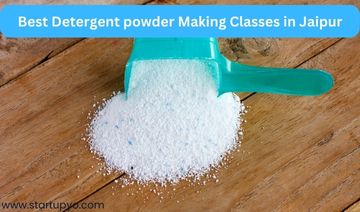Overview
Cooking oil is an important and essential item in the FMCG sector. An average Indian consumes 15 Kg of oil in a year. Compared to other oils like sunflower oil, cottonseed oil, and soy oil, groundnut oil has more nutritional value.In addition to cooking, groundnut oil is used in the bakery and confectionery industry. Groundnut oil is used in soaps, salad oils, mayonnaise, etc. Groundnut oil is expensive compared to other oils. Groundnut oil has good export potential making the Ground Nut Oil Processing Business is a profitable venture.
In India, groundnut is cultivated in 5.8 million hectares. Gujarat is the highest producer of groundnut oil in India. Groundnut seed contains 50-55% of the oil. It is one of the best oil seeds to extract oil from. High-quality groundnut is often exported leaving only second quality groundnut for Indian population. As groundnut oil is expensive, it is adulterated and sold by most oil mills. Therefore, pure groundnut oil has great demand these days. It has more vitamins, minerals, nutritional value and low levels of cholesterol. It is also suitable edible oil for Indian cooking.
Groundnut Oil Production Business Process
Over 85% of the oil from the seed is extracted using the mechanical press. Groundnut undergoes many processes to produce most of its oil content. Following is the groundnut oil extraction process:
Storage → Cleaning → Dehulling → Grinding or rolling → Heating → Pressing → Refining → Packaging.
1. Cleaning:- Clean the ground nuts properly to remove, dirt, sand, and spoil seeds. Use dry screening to remove all over or undersized seeds.
2. Dehulling:- The outer seed coat of groundnut is removed by a power-operated dehuller. Outer seed coat does not contain oil and hence is removed to avoid junk in oil cake.
3. Grinding or rolling:- Oil extraction is maximum with smaller particles. Grinding reduces the seed size. Rolling the seeds produces flakes. Large oil mills might use both grinding and rolling to extract maximum oil.
4. Heating:-Heating increases oil yield. It kills the enzymes that deteriorate oil quality.
5. Pressing:- Pressing the processed seeds using a lever press, mechanical expeller or hydraulic press separates the oil.
6. Refining:-The extracted oil is further refined to remove dust or dirt. Refining adds great value to the oil.
Read More: How to Start Lemongrass Oil Making Business ?
Manufacturing Process
1. Perform Market Analysis:-In India, Gujarat holds the first position in producing groundnut oil. The state contributes to 9% in the groundnut production of the world and 25 to 30% of India. The country’s overall groundnut oil production depends on raw groundnut production.
2 Prepare a Project Report:-Create a project report with technical analysis, location details, manpower requirements and financial aspects. To create a project report, understand the production process, quality control required for raw materials, financial aspects like fixed cost projected sales revenue and working capital. A good project report can get you to finance from banks and financial institutions.
3.Arrange the Finance:-After creating the project report, arrange the finance. Try for funds from bank and venture capital firms.
4.Register the Business:-To establish a groundnut oil processing business, you will need a company registration with ROC, a Trade License, factory license, SSI Registration, BIS certification, Food Operator License, NOC from Pollution Control Board, fire license and AGMARK Certification Depending on your investing partners and investment pattern, form an LLP or Pvt. Ltd or Ltd Company.
After the registration, apply for MSME Udyog Aadhaar Registration,
5. Select a Working Location:- Oil milling requires a moderate covered space area depending on the size and quantity of your production. For small or medium scale production, 1000 Sq. Mar of covered space is required. Calculate the space required for production, storage, packaging, and official work. Ensure electricity supply and water.
6.Setup the Plant:- After obtaining the space, design a floor plan to install machinery, run electric cables, setup storage, etc. Visit some of the established units for an idea on best suitable plant setup.
7.Procure the Machinery:- Using the right machinery yields better quantity and quality of the oil. The main machinery required to groundnut oil production business are pre-cleaner, cans, and trays, Dust Blower, Hammer Mill, Screw conveyor, Roller crusher, Screw press, Filter press, Holding tank, Pumps, Neutralizer, Bleacher, Vacuum pump, Condenser, Deodorizer, Water treatment Set ad Boiler.
8.Hire Manpower:-Groundnut oil processing business requires labor. Manpower is also required for distribution and operating the machine.
9.Procure Raw Materials:-Shelled groundnut is the raw material required. Ensure regular availability of the raw material. Caustic soda and bleaching earth are also required for groundnut oil processing. Buy the most used material for packaging. There are a variety of packaging materials available like pouches, plastic bottles, and tins. Groundnut oil production business can be set up at any location in India as it is used throughout the country.
Many poor quality oils are available in the market for cheaper price. Gain trust in the quality of the oil you produce to establish yourself in the market. Pure groundnut oils are priced a little high. 2.5 Kg of groundnuts can produce 1 Liter of oil. So do not compromise the quality and priced affordably.
Disclaimer :The information contained in this Article is for general information purposes only. The information is provided by StartupYo (SAB Weblabs Pvt.Ltd). While we endeavour to keep the information up to date and truest to the best of our knowledge, we make no representations or warranties of any kind, express or implied, about the completeness, accuracy, reliability, suitability or availability with respect to the website or the information, products, services, or related graphics contained on the website for any purpose. Any reliance you place on such information is therefore strictly at your own risk.



